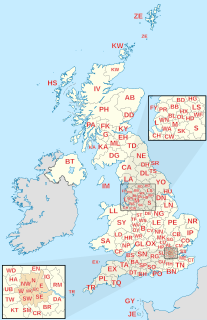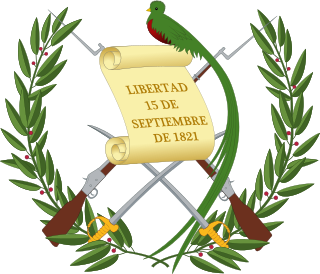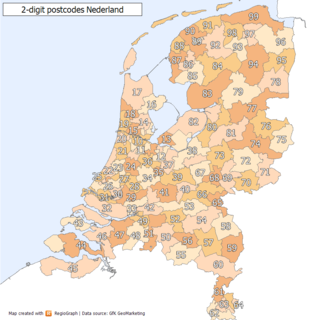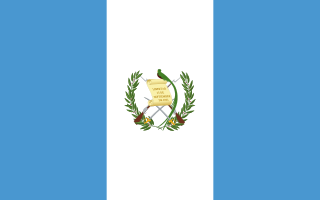This page is based on this
Wikipedia article Text is available under the
CC BY-SA 4.0 license; additional terms may apply.
Images, videos and audio are available under their respective licenses.

A postal code is a series of letters or digits or both, sometimes including spaces or punctuation, included in a postal address for the purpose of sorting mail.
A ZIP Code is a postal code used by the United States Postal Service (USPS) in a system it introduced in 1963. The term ZIP is an acronym for Zone Improvement Plan; it was chosen to suggest that the mail travels more efficiently and quickly when senders use the code in the postal address. The basic format consists of five digits. An extended ZIP+4 code was introduced in 1983 which includes the five digits of the ZIP Code, followed by a hyphen and four additional digits that reference a more specific location.

Postal codes used in the United Kingdom are known as postcodes. They are alphanumeric and were adopted nationally between 11 October 1959 and 1974, having been devised by the General Post Office. A full postcode is known as a "postcode unit" and designates an area with a number of addresses or a single major delivery point.
A Canadian postal code is a six-character string that forms part of a postal address in Canada. Like British, Irish and Dutch postcodes, Canada's postal codes are alphanumeric. They are in the format A1A 1A1, where A is a letter and 1 is a digit, with a space separating the third and fourth characters. As of September 2014, there were 855,815 postal codes using Forward Sortation Areas from A0A in Newfoundland to Y1A in the Yukon.

Guatemala is divided into 22 departments
which are in turn divided into 340 municipalities.
A Postal Index Number (PIN), or sometimes redundantly a PIN code, is a code in the post office numbering or postal code system used by India Post, the Indian postal entity. The code is six digits long.
ISO 3166-2:GT is the entry for Guatemala in ISO 3166-2, part of the ISO 3166 standard published by the International Organization for Standardization (ISO), which defines codes for the names of the principal subdivisions of all countries coded in ISO 3166-1.

MaxiCode is a public domain, machine-readable symbol system originally created and used by United Parcel Service. Suitable for tracking and managing the shipment of packages, it resembles a barcode, but uses dots arranged in a hexagonal grid instead of bars. MaxiCode has been standardised under ISO/IEC 16023.
Postal codes were introduced in France in 1964, when La Poste introduced automated sorting. They were updated to use the current 5 digit system in 1972.
An address is a collection of information, presented in a mostly fixed format, used to give the location of a building, apartment, or other structure or a plot of land, generally using political boundaries and street names as references, along with other identifiers such as house or apartment numbers and organization name. Some addresses also contain special codes, such as a postal code, to make identification easier and aid in the routing of mail.
Canadian provincial and territorial postal abbreviations are used by Canada Post in a code system consisting of two capital letters, to represent the 13 provinces and territories on addressed mail. These abbreviations allow automated sorting.
Ukraine uses five-digit numeric postal codes that are written immediately to the right of the city or settlement name.

The Constitution of Guatemala is the supreme law of the Republic of Guatemala. It sets the bases for the organization of Guatemalan government and it outlines the three main branches of Guatemalan government: executive branch, legislative branch, and judicial branch.

The following is an alphabetical list of topics related to the Republic of Guatemala.

Postal codes in Hungary are four digit numeric. The first digit is for the postal region, as listed below :

The Greek postal code system is administered by ELTA. Each city street or rural region has a unique five-digit number. The first three digits identify the city, municipality or prefecture. In major cities, the final two digits identify streets or portions of streets.

Russian Post has a system of postal codes based on the federal subject a place is located in. Each postal code consists of six digits with first three referring to the federal subject or the administrative division with special status. Some larger subjects have multiple three-digit prefixes. For instance, Moscow's postal codes fall in the range 101–129.

Postal codes in the Netherlands, known as postcodes, are alphanumeric, consisting of four digits followed by two uppercase letters. The letters 'F', 'I', 'O', 'Q', 'U' and 'Y' were originally not used for technical reasons, but almost all existing combinations are now used as these letters were allowed for new locations starting 2005. The letter combinations 'SS', 'SD' and 'SA' are not used because of their associations with the Nazi occupation of the Netherlands.

El Salvador became independent from Spain in 1821. It has produced its own stamps since 1867.











